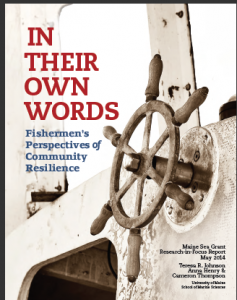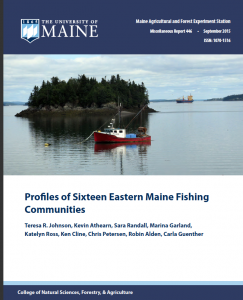Johnson Lab Communities Research
Oral Histories
The Johnson Lab has produced a collection of oral history interviews with fishers and other community members. Oral histories help can help communities and decision-makers understand vulnerability and resilience. With permission, many of these oral histories have been archived at NOAA’s Voices Oral History Project so that they may be accessible to future generations. 
This includes research on the “graying of the fleet” of Maine’s lobster fishery.
Some products from Dr. Johnson’s oral history research:
- In Their Own Words – Fishermen’s Perspectives of Community Resilience.
- Understanding social resilience in the Maine lobster fishery
- Eastern Maine Fishing Communities
- A mixed method approach to understanding the graying of Maine’s lobster fleet
- Vulnerability of fishing communities undergoing gentrification
Community Profiles
The Johnson Lab has profiled Eastern Maine Fishing Communities to understand their socioeconomic status and vulnerabilities.

This information is valuable for community planning, necessary for resilience, but also for assessing the cumulative impacts of social-ecological change on fishing communities, as required by Magnuson Stevens Act National Standard 8.
This project was a collaboration between the Johnson Lab, University of Maine at Machias, the College of the Atlantic, and the Penobscot East Resource Center, with funded from NOAA Saltonstall-Kennedy grant program.
